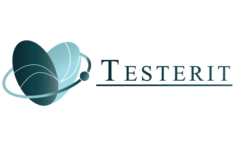Athlete Genetic Testing: How to Know What Your Body Is Truly Capable Of

Imagine if you could know exactly what your body is designed for and how it responds to different types of training. Athlete genetic testing provides precisely this kind of information, as it significantly influences an athlete’s performance in many ways. Genetic tests can reveal insights that help you optimize your training and achieve your goals more quickly and efficiently. In this blog, we will explore how athlete genetic testing can impact physical performance and how you can use this information to improve your training regimen.
In modern sports, the competition is fiercer than ever, and the keys to success increasingly lie in detailed knowledge about our bodies’ functions. Genetic testing is one of the most effective tools for the modern athlete, offering insights into which physical traits you can best develop and which training methods are most suitable for you. We’ll take a closer look at how you can optimize your training and maximize your body’s potential using athlete genetic testing.
Genes and Physical Performance
Genes affect various aspects of our bodies, such as endurance, strength, and recovery. For example, the ACTN3 gene is a well-known sports gene that influences muscle fiber structure, thereby affecting muscle strength and speed. Meanwhile, the ACE gene is related to cardiovascular function and endurance. By understanding how athlete genetic testing reveals traits that affect your body’s performance, you can optimize your training to match your body’s natural strengths and weaknesses.
Research has shown that certain genes can influence how well an athlete adapts to different training programs and physical demands. For instance, genes can affect oxygen uptake, muscle growth, and even motivation levels. This genetic information is a crucial factor in understanding and enhancing athletic performance .
Interpreting Genetic Tests in Sports
Once athlete genetic testing has been conducted, interpreting the results is critical. It’s essential to understand what the test results truly mean and how they can be applied in practice. This is where collaboration with a coach becomes vital. A coach can help you apply genetic information to your training program, making your training more effective and personalized. There are successful examples of athletes who have used genetic information to improve their performance and reduce the risk of injury.
Genetic Information and Tailoring Training Programs
Based on the results of athlete genetic testing, you can tailor your training program to meet your body’s specific needs. This might mean emphasizing endurance-focused training if your genetic results indicate that your body is naturally inclined towards endurance. Strength and speed-focused exercises may be crucial if your genes suggest a potential for muscle strength and speed development. Additionally, you can consider genetic factors related to recovery, allowing you to plan your training and rest periods optimally. Genetic testing can help you choose the right training methods and emphases that maximize your performance and prevent overtraining and injuries.
The use of genetic information in tailoring training programs has introduced a new approach to developing athletes. It helps avoid overly strenuous exercises that do not match an individual’s genetic profile, improving performance and reducing the risk of injury .
Genes, Motivation, and Mental Fortitude
Knowing your genetic potential can also affect your motivation and mental fortitude. Although athlete genetic testing defines part of your performance, mental strength and motivation are factors that can help you surpass genetic limitations. Many top athletes have exceeded their genetic predictions through hard work and strong psychological endurance. Genetic tests can serve as a motivator, but the most important thing to remember is that ultimate success depends on how you use this information and how dedicated you are to your training.
The Athlete Genetic Test and Long-Term Development
Athlete genetic testing can help you set realistic and achievable long-term goals. For young athletes, genetic mapping can be particularly beneficial, as it can assist them and their coaches in selecting the right sports and training methods at an early stage. This information can help avoid overtraining and promote balanced development, which is essential for a long athletic career.
Ethical Considerations and Athlete Genetic Testing
There are also ethical questions associated with the use of genetic tests. Genetic information is personal and sensitive, and the athlete’s rights and privacy must be protected. Moreover, using genetic information to gain a competitive advantage raises questions about when this goes too far. Is the use of genetic information always justified? This is a critical question that athletes, coaches, and sports organizations must grapple with.
Ethical considerations particularly relate to how genetic tests are used in developing athletes and supporting competition. Used correctly, genetic information can be a valuable tool, but its use also carries risks, such as potential discrimination or over-reliance on genetic data .
Conclusion: How to Use Athlete Genetic Testing to Support Your Success
Genes are one part of a complex equation that influences athletic success. By utilizing athlete genetic testing, you can maximize the efficiency of your training and improve your performance. Ultimately, your success depends on how well you use this information and how committed you are to achieving your goals. Genes can give you an advantage, but you are the one who does the work. Take control and use genetic information as a pathway to success!
Don’t leave success to chance. Discover your genetic potential and take the next step towards your goals today! Athlete genetic testing could be the decisive factor in your success.

Testerit Fitness DNA Test – Unlock Your Genetic Potential and Train Smarter!
Improve Your Results and Reach Your Goals Faster!
Have you ever wondered what makes elite athletes so effective? Why do some people recover faster and achieve results in less time? The answer lies in your genetic profile!
🧬 Testerit Fitness DNA Test helps you identify your genetic predisposition for training and physical performance. This test reveals which workout styles suit you best and how you can optimize your training for better, more sustainable results.
💡 Do you train for performance or to improve your health?
🏃 Do you run or walk to enhance your endurance?
🏒 Do you train in ice hockey, swimming, or strength training and want to improve in your sport?
🚴 Do you use everyday exercise for weight management or overall well-being?
🔍 Whatever your goal, this test is for you!
Since we are all unique, individual genetic factors should be considered when planning your training. Testerit Fitness DNA Test provides scientifically based and practical insights into your body’s strengths, so you can train smarter – don’t waste time on ineffective methods! 🚀
References
- Houghton, P. (2019). Will the genetic screening of athletes change sport as we know it? The Conversation. Available at: https://theconversation.com/will-the-genetic-screening-of-athletes-change-sport-as-we-know-it-122781
- Albury, R. (2019). Do genetics influence athletic ability? BBC Earth. Available at: https://www.bbcearth.com/news/do-genetics-influence-athletic-ability
- PubMed: Rankinen T, et al. (2006). Genetic influences on exercise capacity and training responses. Medicine & Science in Sports & Exercise. Available at: https://pubmed.ncbi.nlm.nih.gov/17327385/
- University of Oulu: Räty, H. (2022). Yksilöllistetty liikuntaohjelma geenitiedon perusteella. Available at: https://oulurepo.oulu.fi/bitstream/handle/10024/20148/nbnfioulu-202205202318.pdf?sequence=1&isAllowed=y
